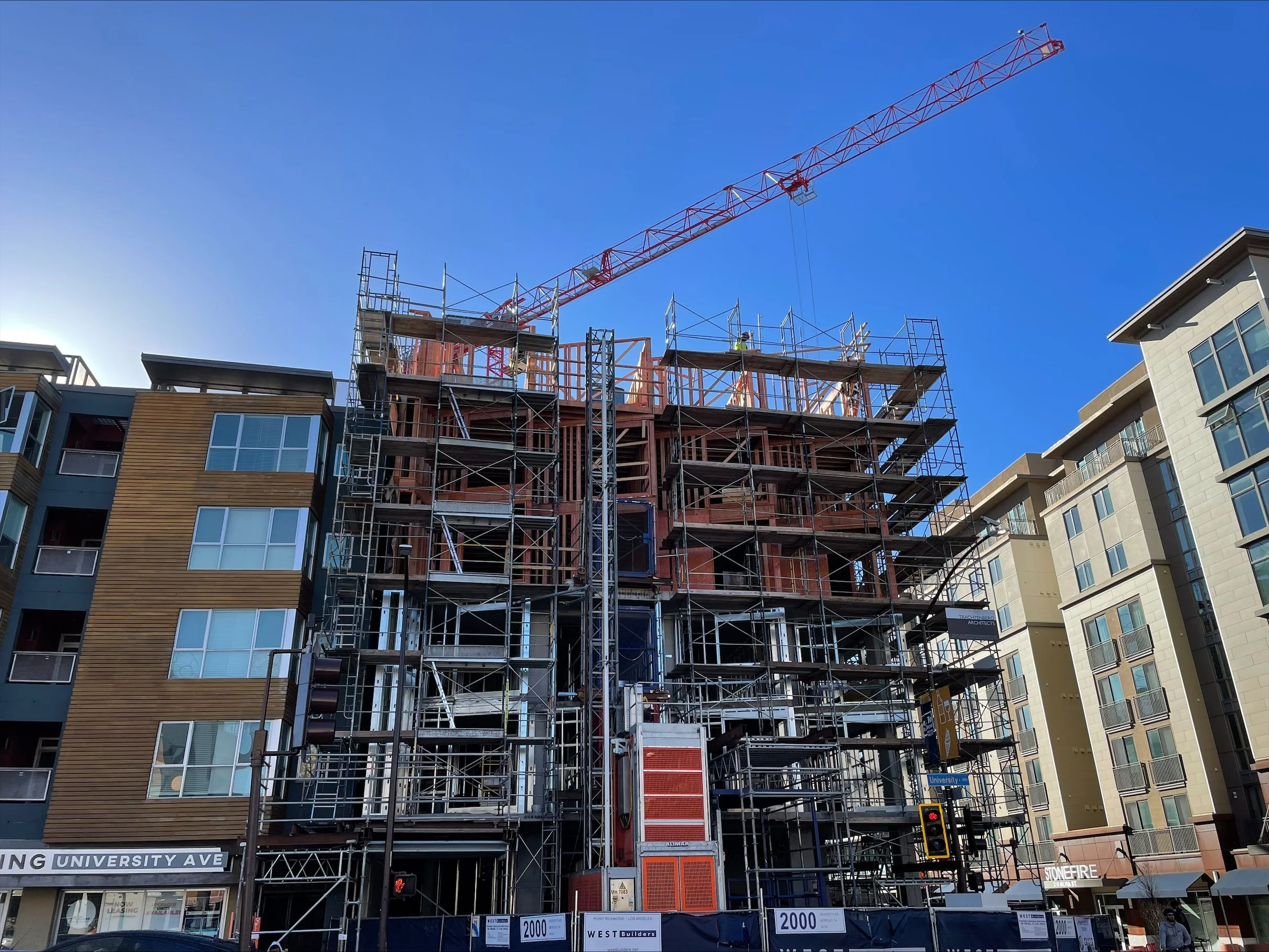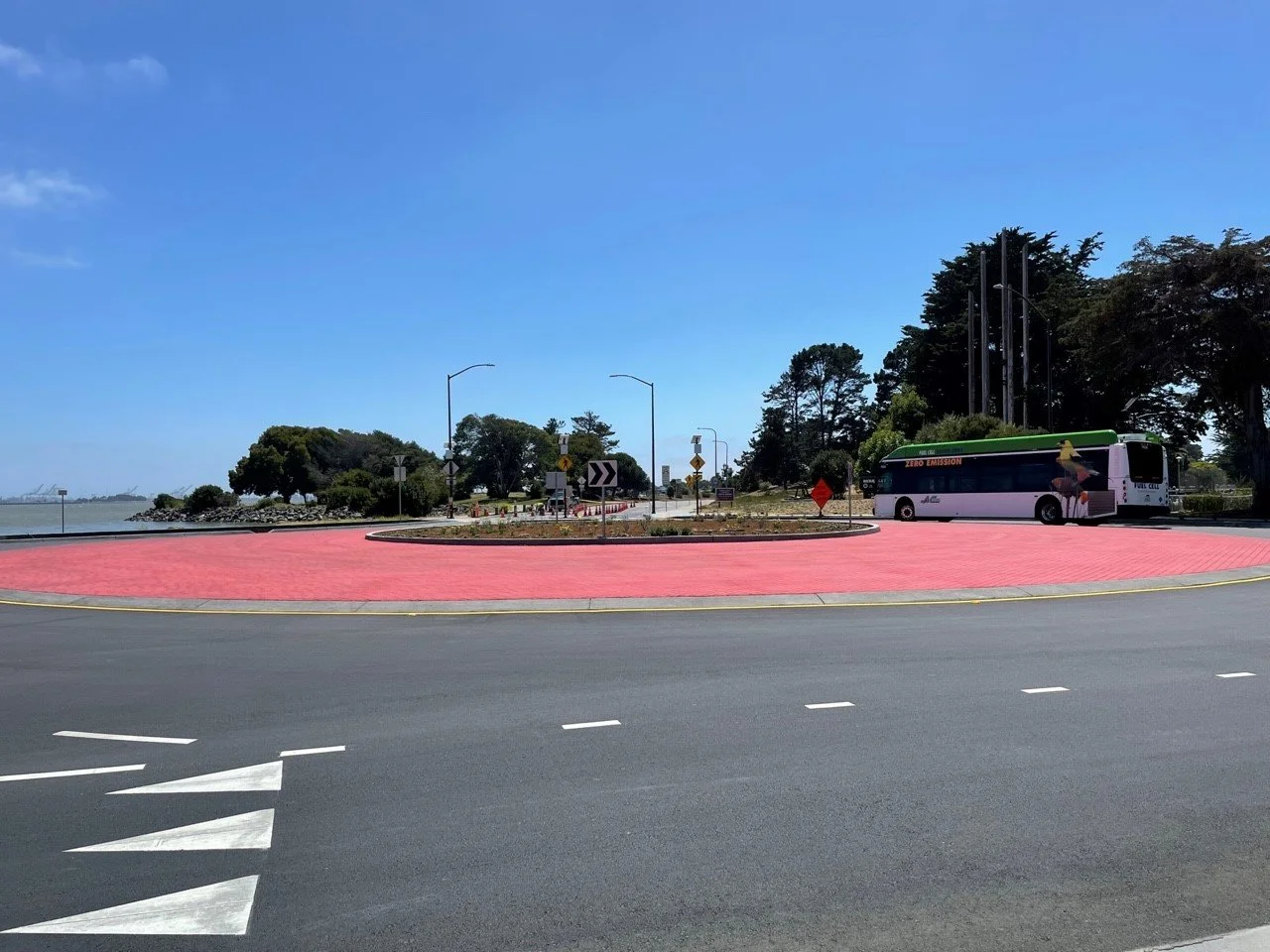Housing Element, Restaurant Week, and More Berkeley News
Storms Bring Intense Conditions, Drought Relief
The March 21 bomb cyclone that brought fierce wind, rain, and power outages to Berkeley and the Bay Area was the strongest storm recorded to hit California in March. This was the latest of a series of storms and twelve atmospheric rivers to hit the state during an unprecedented season that has shattered multiple records since late December. While climate change cannot be attributed to a single storm, it is clear that the extreme conditions California has experienced in recent years, from record breaking heat, drought, and wildfires, to significant rains, snow and flooding, are a result of human-caused climate change. Such extreme events are expected to become more common in the years and decades ahead, switching between excessive drought and excessive storms. Another storm, while not as powerful as last week’s, is expected to bring strong winds and heavy rains throughout Northern California tomorrow. Visit the National Weather Service for the latest weather alerts and conditions.
If there is any good news to take away from this destructive rainy season, it is that drought conditions have significantly improved. At the end of 2022, 98% of California was under drought conditions, with over a third in extreme or exceptional drought conditions. As of March 23, 36% of California is under drought conditions and 0% in extreme or exceptional drought conditions. Almost all of the Bay Area, including the entirety of the East Bay, is no longer under drought conditions. With the sudden change in drought conditions, EBMUD removed the 8% drought surcharge initiated in July 2022, on March 1. However, the 10% mandatory water use reduction still remains in place, but will be reviewed in the near future. California’s snowpack is currently at 227% of average, and could end up being the largest snowpack since records began in 1929.
Despite copious precipitation and snow, drought conditions could easily return. An early spring heatwave could cause significant snowmelt that could lead to flooding in the Central Valley, as reservoirs would be forced to release the sudden surge in water levels. Additionally, groundwater levels throughout the state will take years to recover. One thing that is clear is that both locally and statewide, additional investments will be needed in infrastructure to adapt to a changing climate.
Berkeley's Housing Element Approved
On February 28th, California’s Department of Housing and Community Development approved Berkeley’s Housing Element. Every jurisdiction across California is required to submit an updated Housing Element every eight years, which serves as a blueprint on how each jurisdiction is going to accommodate the creation of housing as required under the Regional Housing Needs Allocation (RHNA). Under RHNA, Berkeley needs to build 8,934 units of housing over a wide range of income levels between 2023-2031. Berkeley’s Housing Element shows that through Likely Sites (developments already approved or under construction), Pipeline Sites (developments that have submitted a proposal or in the pre-application phase), and Opportunity Sites (vacant and underutilized sites that could see proposed development in the future), there is capacity to build 15,001 units over the next eight years. This does not guarantee that all these units will be built, but it shows what could be done under existing zoning regulations. The Housing Element does not create specific development proposals, nor does the City create its own housing. Rather, the Housing Element creates the conditions needed to meet the number of units required under RHNA.
Under this RHNA cycle, the State has become increasingly involved with housing policy. Several bills that have passed in recent years to accelerate the creation of affordable housing include SB 35, which streamlines developments that have at least 50% affordable housing, and AB 1397, which requires sites identified under the previous RHNA cycle but were not built to be approved by-right if they include at least 20% affordable units. The Department of Housing and Community Development has become more meticulous in their review of Housing Elements. As of March 27, only 11 of the Bay Area’s 109 jurisdictions have an approved Housing Element. Failure to have a certified Housing Element could result in the loss of access to State Grants, fines and penalties from the State, and/or intervention from the courts that would take away a jurisdiction’s ability to independently control its zoning regulations.
Marina Streets Improvement Project Receives Awards
Last year, the Berkeley Marina Streets Improvement Project was completed, renovating three streets at the Marina that had become highly degraded - University Avenue, Marina Boulevard, and Spinnaker Way. In addition to creating a smooth ride for vehicles, pedestrian and cyclist improvements were installed along with green infrastructure and stormwater treatment. This project was one of dozens of projects completed under Phase One of Measure T1, which provided $65.7 million in infrastructure improvements across the City.
Last month, the City received three awards for this project. Best Project of the Year and Best Transportation Project in the $5-$25 million category was awarded by the American Public Works Association (APWA) Northern California Chapter. The Northern California Chapter of the APWA is the oldest chapter west of the Mississippi, encompassing eleven counties across Northwest California. It also received the Complete Streets Best Project of the Year Award for Local Streets and Roads from the County Engineers Association of California (CEAC). CEAC is comprised of county engineers, public works directors, county road commissioners, and professional personnel throughout California’s 58 counties.
This is the third time in the past ten years that Berkeley has been the recipient of the Project of the Year Award from the APWA. The renovation of the Mental Health Services Center won the award in 2021, and the renovation of the Ratcliff Building at the Corporation Yard won in 2013.
Restaurant Week: March 23 - April 3
Berkeley Restaurant Week, or March Munch Madness, is back and bigger than ever. 70 restaurants are participating, offering a variety of special menus for any budget. Revisit old classics and discover new favorites while supporting local businesses. For a full list of participating restaurants, click here.
Visit Berkeley is partnering with Project Open Hand in raising donations and awareness to improve health outcomes by providing lifesaving, nutritious meals that heal individuals in the Bay Area who are experiencing complex health conditions.
Government Meetings Now In-Person or Hybrid
Under the State’s COVID-19 State of Emergency, government meetings were allowed to be virtual for both officials and the public. However, with the expiration of the State’s emergency on February 28th, this rule has now expired, meaning that meetings must revert to pre-pandemic form.
All public meetings, including City Council and Commissions, are now required to have in-person formats. Specifically, the City Council and Council Policy Committees, Rent Board, School Board, and Zoning Adjustments Board now have hybrid formats where the public can attend either in-person or via Zoom. All other City Boards and Commissions are now only in-person.
For more details, including ways to participate or listen to meetings, click here.
Apply for Berkeley's Board of Library Trustees
The Berkeley Public Library is looking to fill a vacancy on its Board of Library Trustees (BOLT). Candidates should be public library champions, passionate about lifelong learning and community engagement. A demonstrated commitment to equity, diversity and inclusion is essential. In addition, candidates with leadership, business, management, strategic planning, marketing and/or administrative skills are encouraged to apply.
Trustees are appointed to four year terms by the Council, and are responsible for formulating policy, serve as managing agents of the Library Fund, and oversee the management of the Library. BOLT meetings take place on the first Wednesday of the month at 6:30pm.
To apply, fill out the Commissioner Application and Supplemental Questionnaire, and submit to the City Clerk’s Office by 5pm on April 17th. Candidates will be interviewed at a public BOLT meeting on a date to be determined, tentatively May 3, 2023, and will then be submitted to City Council for a vote to appoint the Trustees’ recommended candidate during an upcoming City Council meeting. The new Trustee’s term is anticipated to begin June 6, 2023, in time for the June 7, 2023 6:30pm BOLT meeting. For more information, click here.





